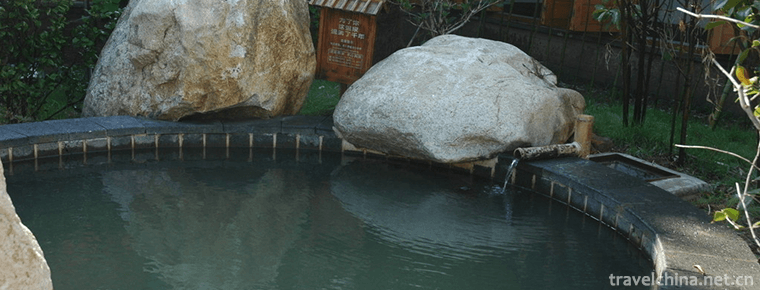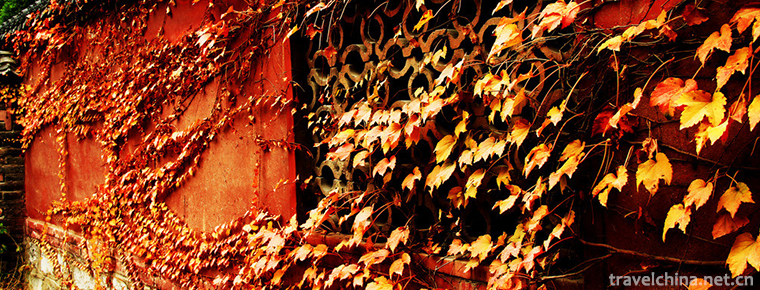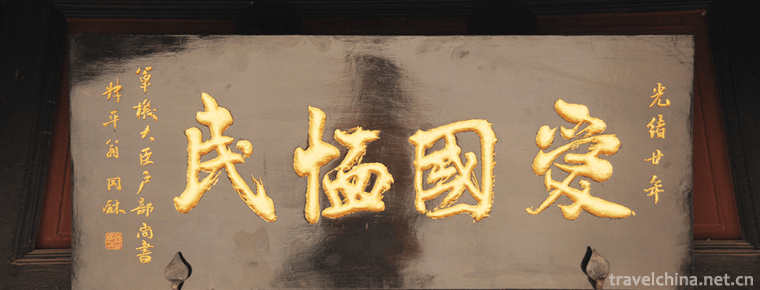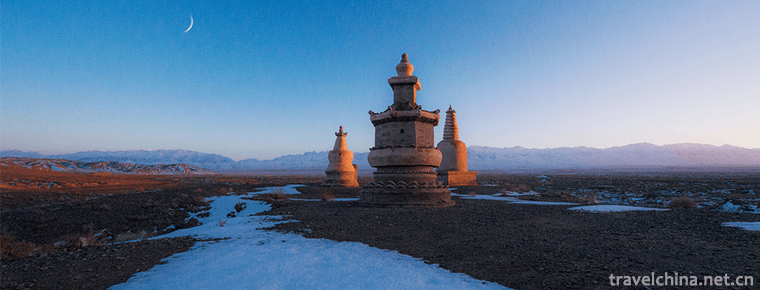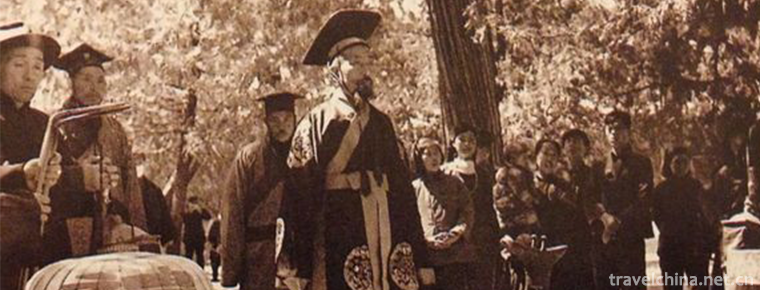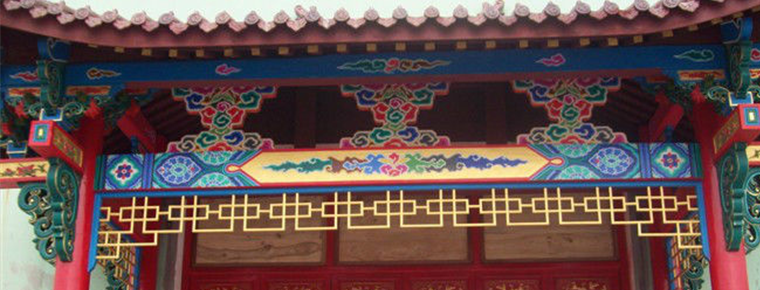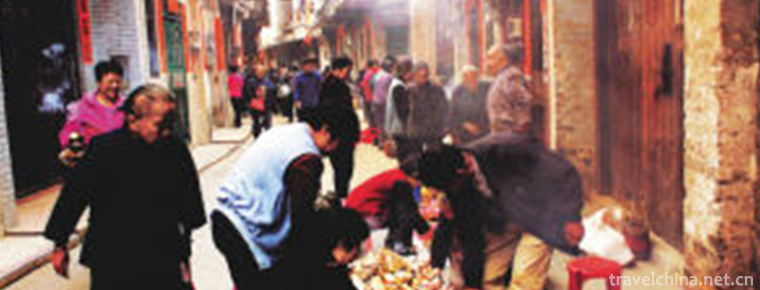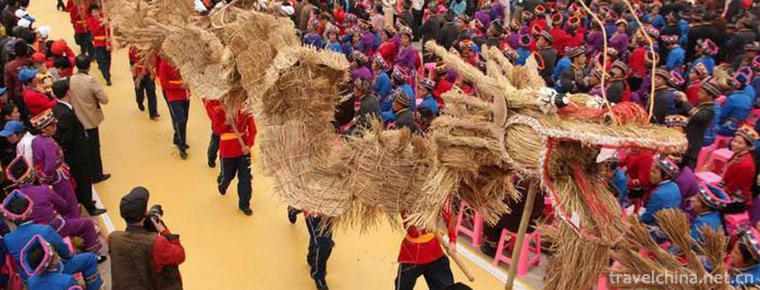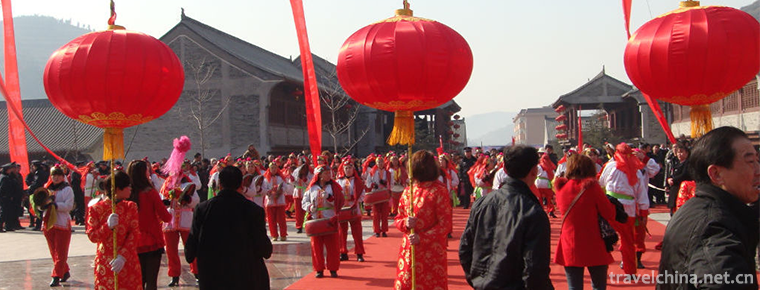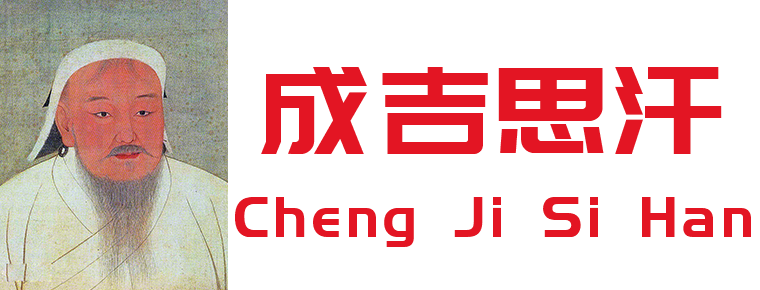Fengyang folk songs
Fengyang folk songs
Fengyang folk song is a traditional folk song in Anhui Province. Fengyang folk song in Fengyang flower drum is one of the important components of Fengyang folk song. Under the influence of immigrant culture in the early Ming Dynasty, Fengyang folk songs were renovated historically and developed greatly, and became famous both at home and abroad. The earliest record of Fengyang folk songs in written form is the legend of Hongmei Ji written by Zhou Chaojun in the Wanli period of Jiajing in Ming Dynasty.
On May 23, 2011, Fengyang Folk Songs were listed in the third batch of national intangible cultural heritage list with the approval of the State Council.
artistic characteristics
Fengyang folk song has a wide range of popularity. It expresses the joys, sorrows and sorrows of the working people's lives, and is a true portrayal of social life in different historical periods in China. With Fengyang Flower Drum as the carrier, "Beating Flower Drum" and other tracks, it has a significant impact on the Musical Singing of many kinds of music in our country. After the early Ming Dynasty, Fengyang Folk Songs, especially in the south of the Yangtze River, Beijing and Shanxi Province, have been playing an important role in China with the immigrants selling their skills everywhere to survive. According to historical records, except Xinjiang and Tibet, the melody of Fengyang folk songs has been floating in other parts of China.
After the late Qing Dynasty, more than 300 Fengyang folk songs were often circulated. At the beginning of the twentieth century, Fengyang folk song was one of the folk arts that entered records at that time. According to incomplete statistics, more than 10 tracks were recorded and became popular. Among them, the song "Fengyang Flower Drum" sung by Golden Voice is sung all over the land of Shenzhou.
In addition to entertaining the people, Fengyang folk songs have great influence on current affairs in different historical periods in China. During the Anti-Japanese War, Ann E compiled lyrics and Ren Guang compiled music. Li Lili sang "New Fengyang Song" for a while. Before and after 1949, in order to cooperate with the work of the local center, Fengyang people created a large number of new folk songs serving the current affairs, such as "Five Curses against Chiang Kai-shek", "Land Reform Chant", "Sending Langs to the Army", "Five Gentlemen to Govern Huaihe River" and so on, which played a great role in propaganda and inspiration.
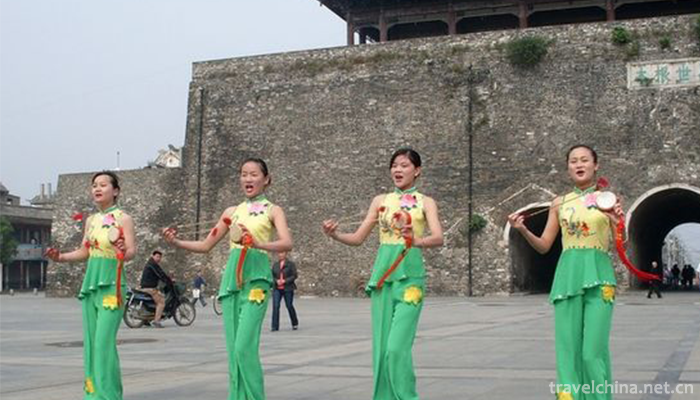
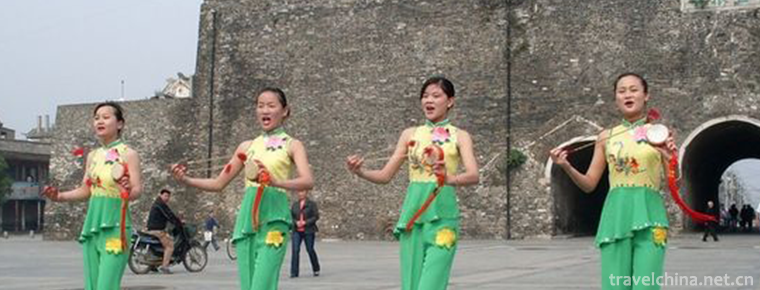
Fengyang folk songs
-
Tianshan Tianchi Scenic Area
Tianchi Mountain: World Natural Heritage, National AAAAA Class Tourist Scenic Spot, National Geopark, National Key Scenic Spot, National Civilized Scenic Spot, International and Natural Biosphere Rese
Views: 196 Time 2018-12-12 -
Guan Tang hot spring
Guantang Hot Spring is located in Tangtou Town, Linyi City, Shandong Province, on the East Bank of Yihe River. The hot spring covers an area of nearly 260 Mu and has a construction area of 100,000 squ
Views: 210 Time 2019-01-13 -
Liao Zhai City
Liaozhai City was invested and built by Pujiazhuang, Zichuan. It is a large-scale famous garden scenic area with gardens as its manifestation and Liaozhai stories as its theme
Views: 181 Time 2019-01-30 -
Mars Manor Scenic Spot
Ma's Manor, located in Xijiang Village, 20 kilometers west of Anyang City, Henan Province, is the mansion of Ma Piyao, governor of Guangdong Province in the Qing Dynasty.
Views: 161 Time 2019-02-06 -
Sunan Wenshu Temple Scenic Spot
The Sunan Wenshu Temple scenic spot is located at the foot of the Suzhu Chain, the main peak of Qilian Mountain in Sunan County, Gansu Province. It is a national key cultural relic protection unit and
Views: 194 Time 2019-02-13 -
Avanti
Avanti, also translated by the Albanian side, (Uygur "Mr." means, Arabic: Juha or Nazar Ding), is a person active in Islamic nationalities from Morocco in the west to Xinjiang in China.
Views: 177 Time 2019-03-28 -
memorial ceremony for Confucius
The sacrifice to Confucius is a grand sacrifice ceremony held mainly in Confucian temples for the sake of revering and remembering Confucius, which is a miracle in the history of world sacrifice and h
Views: 143 Time 2019-05-05 -
Architectural coloured drawing
Building painting is a kind of image art, which occupies an important position and unique function in building decoration. It has vivid image, abundant content, observability and practicability
Views: 286 Time 2019-05-05 -
Liaobu fragrant Market
Liaobuxiang City is a traditional folk activity. During the Wanli period of Ming Dynasty, the scent of Guanxiang perfumed over Liaobu Town in Dongguan every day. Numerous guanxiangs were transported f
Views: 201 Time 2019-05-13 -
Mulao Effort Festival
Mulao people mainly live in Guangxi Zhuang Autonomous Region and call themselves "Ling" and "Jing". Yifan Festival is a unique traditional festival of Mulao nationality, with a str
Views: 118 Time 2019-06-06 -
Neutralization Festival
Zhonghe Festival, a traditional Chinese folk festival, is on the second day of February, but the date at that time was on the first day of February. With the evolution of history, it was changed to th
Views: 391 Time 2019-08-03 -
Genghis Khan Cheng Ji Si Han
He was a Jin Jin. He was from May 31, 1162 to August 25, 1227. Yeke Mongghol Ulus Khan, outstanding in world history. Politician , Militarist
Views: 162 Time 2019-09-07

